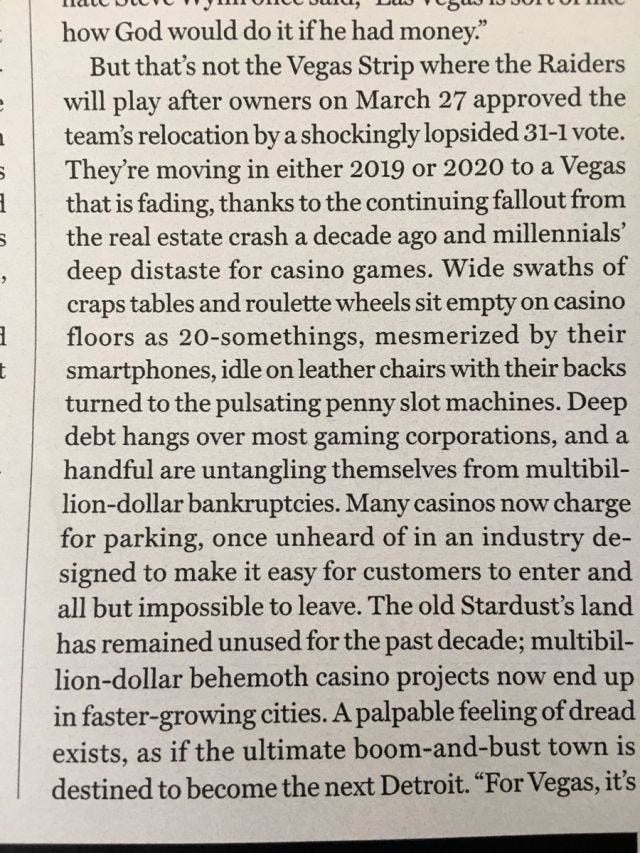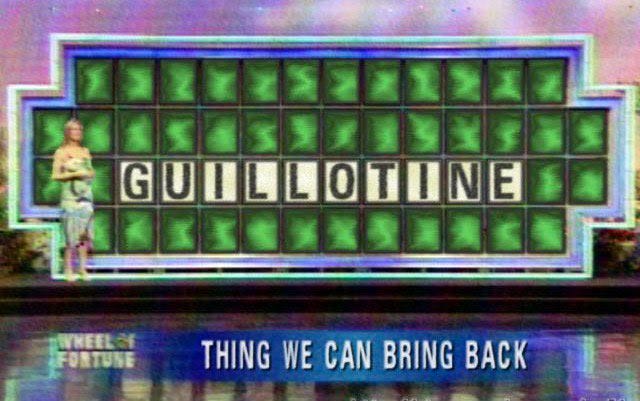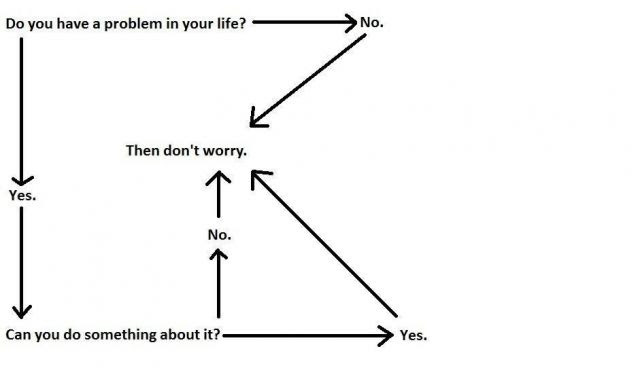EPISODE 214: GIVING YOU THE BUSINESS

POP CULTURE SPIRIT WOW
Last week a tech guy I follow named Dan Hon was commenting on the United fiasco. (Almost two weeks now since their infamous “withdrawal” of a ticketed passenger, the “Days Since Last Crisis” sign at United continues to hover precipitiously close to zero, with new stories this week of a couple on the way to their wedding being thrown off a plane because they tried to sit in Economy Plus in a less-than-full flight after they found their Economy seats were already occupied by a sleeping passenger.)
Hon used the situation of United to reflect on the broader issue of how systems put in place ostensibly to serve us end up creating situations in which customers and employees are dehumanized.
Take customer service phone lines, for instance. In theory these sorts of services are enormously important to a business, in that they provide a way to keep loyal customers happy and to troubleshoot unintended problems.
Yet today most major businesses have farmed out those call lines to people in other countries whose mastery of the language at times seems suspect and whose accents can be formidable (the moreso given that the phone connections are often so weak you’d think you’re calling the 1960s.) What’s perhaps more troubling, these front line agents often don’t really know that much. Hon suggests that’s part of the idea of customer service today – not to satisfy but to get you to surrender, to keep you tied up long enough that you decide it’s really not worth your time.
There are also the situations, much like the United incident, where agents get in trouble because the procedures they are instructed to follow don’t take account for the fact that there are actual human beings on the other side of the equation. And when that reality is mentioned – i.e. the actual human beings ask to be treated like actual human beings – the agents are either left trapped between the policy and their own basic humanity, or refuse to acknowledge that they themselves, as other actual human beings with free will and the capacity for independent thought, have some role to play in the equation at all–even if only in terms of the empathy they show.
Our systems and procedures, Hon notes, can invite employees to a certain abnegation of personal responsibility or decency, or a “decision fatigue”, in which agents who have been allowed so little ability to make decisions are less agile when that skill is demanded. They are reduced to being nothing more than extensions of a computer algorithm or company policy.
And that’s often how the corporations want it, right? No independent thought or action; just follow procedure. United’s CEO Oscar Muñoz announced on Tuesday that no one will be fired or suspended as a result of what happened last week , that it was “never a consideration”, because what happened was “a system failure across various areas.” On one level it’s infuriating; but on the other hand, maybe that’s exactly right – the main problem is United’s inhumane system. A friend with some knowledge of these matters told me the agent involved was almost certainly a low level employee, working at or close to minimum wage. It seems incomprehensible, but on another level, again, isn’t that exactly as the airlines want it – someone without the experience or authority to be able to feel comfortable exerting any independent thought.
Here’s Hon’s conclusion, which I found really striking:
United are merely the latest and most visible example of a collection of humans who have decided to remove themselves from the loop and to blame rules - that they came up with - rather than to accept responsibility and to do the hard work.
When we design systems and algorithms, we must make a decision: are these to help us provide *better* outcomes for humans who think and feel, or are they a way for us to avoid responsibility and to merely make things easier for us? It means choosing to do the hard thing over the easy thing.
If you’re interested, here’s the link to his piece.
++

Yet another thing
you millennials are apparently ruining for all of us.
++
A good friend of mine worked for United for almost forty years, first at the call center in Chicago making reservations, and then in customer service in Honolulu. And she loved it: "I will be eternally grateful for the life I have been able to enjoy," she wrote me. "I have been able to travel anywhere in the world. And I have met so many incredible people working at United."
She very kindly agreed to answer a couple questions about her experience working in customer relations for the airline.
What would you say were the most positive parts of your work?
I've always enjoyed engaging with people, so customer service always felt right for me. Of course, before the internet you really were giving service helping people book their reservation and hand writing their ticket. In Honolulu especially, part of a customer's trip was going down to the airport and standing in line at the ticket counter waiting to do business with your favorite agent!
Another fond memory of mine - when kids would go off to college, just about everyone they knew would come down to the airport to wish them "aloha"! There was no security check point at that time, so "everyone" would come down to the gate with leis and gifts. It was such a warm and friendly occasion. You couldn't tell if everyone had boarded, since the gate room was still full. Family and friends would wait until the plane left the gate and would then wave until the plane was out of sight.
I have fond memories of the days when we were "empowered" to make decisions to make things "right" for the customer. Make a date change without a fee, because they were loyal UA customers. Take care of a situation because it was the right thing to do. Rules could be broken.
Slowly technology was introduced and the definition of customer service seemed to change. 9/11 happened. Airlines began filing for bankruptcy. Pay cuts and loss of pensions started happening. Customers could make their own reservations on their computer and have an electronic ticket. The airlines started charging for everything. Breaking the rules for customers was pretty much gone. The skies weren't friendly and customer lost their loyalty. Profits had become more important.
That leads me into the other side of things: What would you say were the most challenging parts of your work?
One of the most challenging times working at United was just a year after I started when an American Airlines plane crashed at Chicago O’Hare. All 270 passengers and crew died. After it was determined that the DC10 plane could have been at fault, they grounded all DC10s for 37 days. It was a very sad time and also an incredible amount of work trying to get passengers rebooked.
One other memory, more challenging than fond: In the late 80's, World Airways, (one of the many airlines now out of business), discontinued their flight service in and out of Honolulu. United made this heroic act of saying they would absorb World’s passengers. This happened to be over Christmas where open seats were few and far between. We would have 400 people on standby for a flight that was full.
It was a mob scene and the police were there every day and night. This lasted for about a week, until someone figured out it would be a good idea to fly in a few planes to help the stranded passengers.
There was no social media. It was a mistake by some executive that couldn't see the repercussions. I'm sure it made the local news and that's as far as it went.

What's your reaction to the reports about United these last few weeks?
We are only seeing what social media wants us to see. I can see both sides, but in no way condone the doctor’s treatment. It was disgraceful and changes will come out of this at United as they should! We've stooped too low.
If you ran the world, what suggestions would you have for the airline business today?
Hmmmm....if I ran the world, I would turn back the clock and set a standard of profit on all routes, so customers would not be charged any more than the price of the their purchased ticket and still have all the amenities, i.e. checked bags, food, on board entertainment, blanket.
Also, there would be required soft skill training where customer needs and experience are considered above profit. Airlines would work together, as in the past, to give customers better service. Airline employees should be able to make exceptions for emergencies without a fee. I would bring kindness back.
Brings back memories of airline days gone by, doesn't it?
++

And speaking of dumb comments...Two years ago, I actually wrote a piece for America Magazine about United. Specifically, about what the Church could learn from United’s great customer service.
Yeah, it’s not seeming to hold up to the test of time.
But I’ll also say, I was very surprised at the level of hostility I received from readers even then. (My favorite comment: “It would be nice to see more humorous writing be produced by America Media. This is the first time I have laughed at a piece published by y'all in a long, long time.”)
I’ve flown United my whole life. My very first flight, also my first journey away from home, was on United. They’re one of Chicago’s hometown industries, and I think a lot of us Chicagoans root for them as a result. (We also don’t understand why everybody hates O’Hare. Compared to Newark, LAX or a lot of other places, it’s a pretty nice airport. Go on. Take your best shot.)
I got in a debate over the weekend with my dad about whether or not the United story hadn’t been misreported, maybe the passenger had only been dragged after having been escorted off the plane and then trying to get back on.
And there’s a whole other piece to be written about how quickly these sorts of social media-relayed incidents are run by the national media, and whether proper protocols are really followed in ascertaining the facts of a story. But listening to my dad talk I think I also heard that desire to support the home team.
Still, when I’ve been abroad, I’ve been stunned at just how much higher the quality of air service sometimes is normal economy passengers. Australia's base market is far far smaller than the States, just 24.6 million people, and Australian fares are if anything slightly cheaper than ours. Yet somehow their airlines have insisted on maintaining a level of customer service Americans haven’t seen in twenty years. That’s a conscious decision those airlines made, one I suspect is about respect and also pride.
Would that United and other American businesses could rediscover those qualities again. (I have no doubt many of their employees, like my friend, wish for the same.)
++

A random and somewhat ridiculous thought on these topics: I’ve been watching “Deadwood” for the first time the last few weeks. For those who don’t know it, “Deadwood” was one of HBO’s first batch of truly revolutionary TV shows (along with Oz, The Sopranos and Six Feet Under). Created and run by David Milch (who had previously co-created NYPD Blue), the show imagined the ragged, violent early days of the Deadwood, South Dakota mining community (with a twist of the linguistic wit and complexity of Shakespeare).
It can be a brutal show, but the more I watch the more I wonder whether that world doesn’t have something on ours when it comes to basic human decency and respect. Yes, if you crossed someone back then they might shoot you. That is not a good thing nor a thing we want and yes in that world I would almost certainly already be dead.
But on the other hand, you couldn’t just treat people back then like garbage without eventual consequences. Everyone needed each other’s help and friendship more, and the people “at the top” had to deal with the fact that they were going to run into their customers every single day. So go along, get along, or else.
No one should have to live in fear, but boy, it sure would be nice if business owners couldn’t avoid having to interact regularly with their customers.
++ A last “business” item: Have you ever wondered where all the bizarre minor national holidays that you generally only hear about on Good Morning America or The View actually come from?
(Speaking of which, Happy National Chocolate Covered Cashews Day, everybody.)
NPR did wonder. And they assumed that what they would find behind it all is some company trying to make a buck. But the real story it turns out, is a lot more lovely, and about helping people to get through the day.
Click here to give it a listen.

It's apparently also National Peeps Day.
And National Give Kids Diabetes Day.
++ LINKS ++
Someone recently turned me on to Jain, a French-born singer raised in the United Arab Emirates and the Congo. Her videos are like Ok Go meets an M.C. Escher painting (especially this one). And she’s got a sweet dance vibe. Great to get you started in the morning.
If you like dogs trust me when I say you’re going to be very happy to click on this. (And if you animals scare you, you need to read this, because apparently science really is interested in making it impossible for us ever to sleep again.)
And speaking of Star Wars – a phrase that is never a non sequitur in my life – this detail on what they’re going to be doing at Disney’s new Star Wars theme parks is crazy and amazing and you may call me Darth Ridonculus.

I don't generally go for beards,
but Old Man Sith beard are tremendous.
This week I came upon the story of British comedian named James Veitch who decided that rather than ignoring internet email scammers, he would interact with them.
(Veitch has done a bunch of funny videos retelling his experiences, given a TED talk and also put out a book about his experiences, Dot Con (which is only $5.50 on Kindle)).
In discussing what he’s learned, Vetch had this to say: “If ever you feel weighed down by the bureaucracy and often mundanity of modern life, don't fight the frustration. Let it be the catalyst for whimsy.”
Fare you well, everybody. And when you don't, may your frustrations be a catalyst for whimsy.


